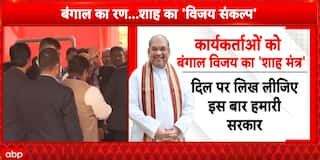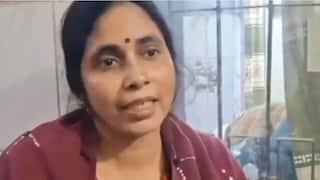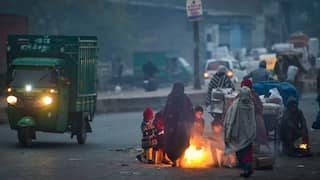SC to hear Ram Mandir-Babri Masjid case on December 5
The Supreme Court on Friday said it would start hearing appeals in Ram Mandir-Babri Masjid case from December 5 and that no adjournments will be allowed.

New Delhi: The Supreme Court on Friday said it would start hearing appeals in Ram Mandir-Babri Masjid case from December 5 and that no adjournments will be allowed. A three-member bench of Justice Dipak Misra, Justice Ashok Bhushan and Justice Abdul Naseer asked contesting parties to translate into English, within 12 weeks, the exhibits of the documents on which they will likely rely upon since these were in eight different languages. The Uttar Pradesh government was asked to translate within 10 weeks the evidence recorded for adjudication of the title dispute in the Allahabad High Court in English. The apex court reached a consensus on commencement of the hearing on the cross-appeals filed against the 2010 high court judgment. The bench gave time to complete translation of nearly 1 lakh pages from eight different languages to English and said the time frame fixed by it for completion of pleadings is final and no adjournment will be granted. The court had constituted special bench to hear appeals filed against the high court judgement in the Ayodhya land dispute case. The high court's Lucknow bench had said the disputed 2.77 acre area at Ayodhya should be partitioned equally among three parties -- the Sunni Waqf Board, the Nirmohi Akhara and Ram Lalla. The Uttar Pradesh government sought early hearing of the case, while counsels appearing for Sunni Waqf Board and the Nirmohi Akhara told the court they need time to prepare for the case as documents are voluminous. Bharatiya Janata Party leader Subramanian Swamy, who filed an intervention application seeking early hearing in the case, told the bench that his fundamental right to worship should be considered. The court, however, said it will hear appeals first. Filing an affidavit, the Shia Waqf Board on Tuesday said a mosque can be built in a Muslim-dominated area maintaining a reasonable distance from Lord Ram's birthplace in Ayodhya. It had said closeness of places of worship "should be avoided in as much as both denominations using loudspeakers tend to disturb religious performance of each other, often leading to conflicts and acrimony in the two factions". "To bring quietus to the issue, Masjid can be located in a Muslim-dominated area at a reasonable distance from the most revered place of birth of Maryada Purushottam Sri Ram," it added. The Shia Waqf Board contended that the Sunni Waqf Board has no stake in the case since the mosque was Shia property. "Since Babri Masjid was a Shia Waqf, only Shia Central Waqf Board, Uttar Pradesh, is entitled to negotiate and arrive at a peaceful settlement with other remaining stakeholders," the affidavit stated. The would adjudicate the dispute over ownership of Ram Mandir-Babri Masjid land.
Related Video
Astrology Forecast 2026: Astrology Forecast Flags Health, Power Challenges for Trump in 2026s





































